The LCGC Blog: ExTech 2023, Celebrating 25 Years of Innovation in Extraction Technologies
The 25th anniversary of ExTech, the International Symposium for Advances in Extraction Technologies, was held on the beautiful island of Tenerife, Spain, from July 18th to July 21st, 2023. The symposium was hosted by Veronica Pino and Javier Hernández-Borges, of the University of La Laguna.
The honorary chairman of the event was Janusz Pawliszyn, who founded ExTech in 1999, at the University of Waterloo, in Ontario, Canada.
From Left to Right: ExTech 2023 Co-Chairman Javier Hernández-Borges, Honorary Chairman Janusz Pawliszyn, ExTech 2023 Chairwoman Veronica Pino.
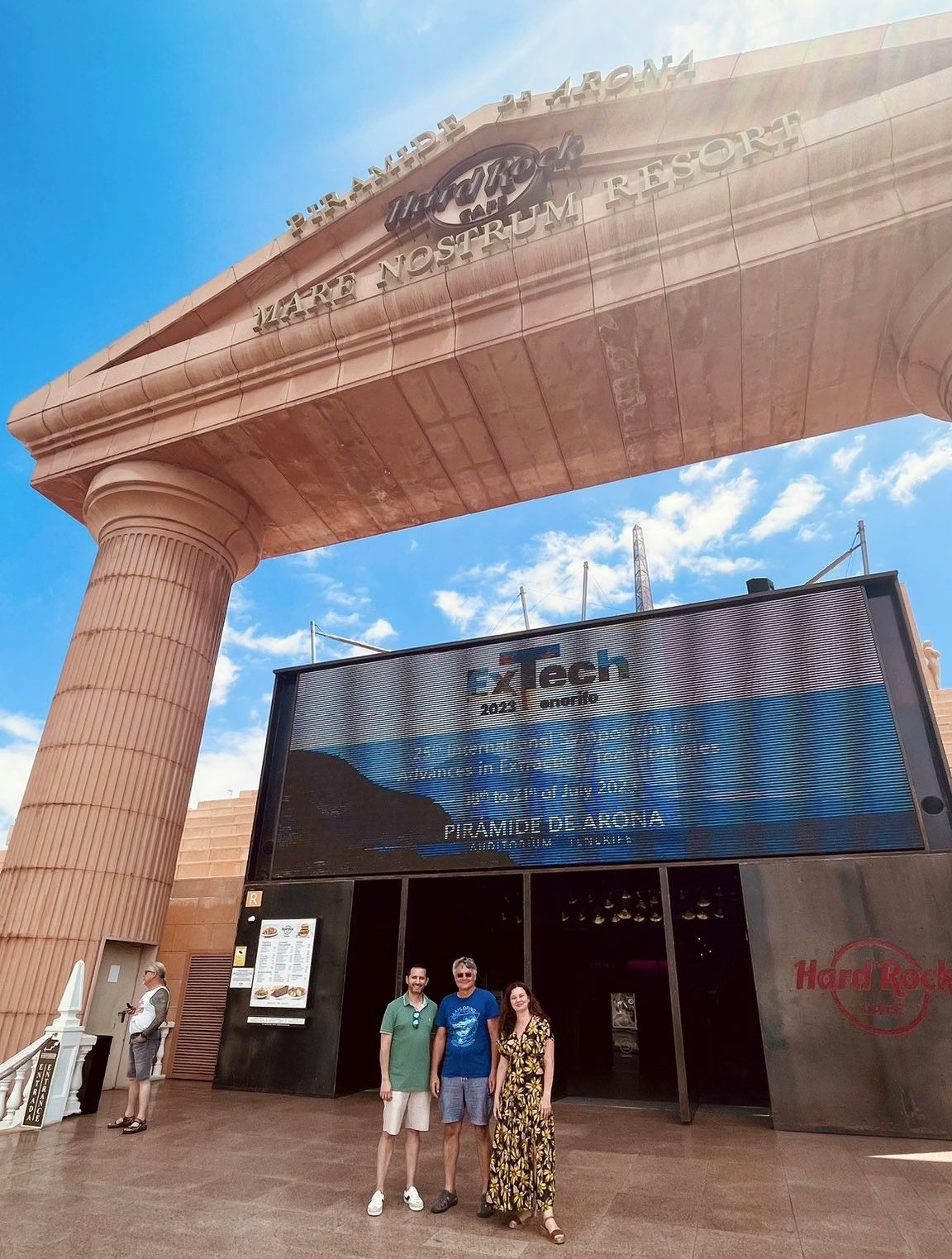
ExTech is undoubtedly the largest conference dedicated to extraction technology, a field within separation chemistry that has seen remarkable growth over the past three decades. It brings together researchers working on pre-chromatographic separations, that save chromatographic systems and instrumentation from the "garbage in-garbage out" effect while enhancing instrumental performance through clean-up and preconcentration.
This year, we celebrated this symposium’s important anniversary through an exquisitely organized event that gathered 222 participants from 25 countries with a total of 3 plenary lectures, 21 keynote lectures, 62 oral communications and 174 posters.
The symposium opened with a plenary lecture by Janusz Pawliszyn and Stig Pedersen-Bjergaard that updated the audience on the latest advances in the microextraction field and provided important insights on the future of the field.
Opening plenary lecture delivered by Janusz Pawliszyn and Stig Pedersen-Bjergaard.
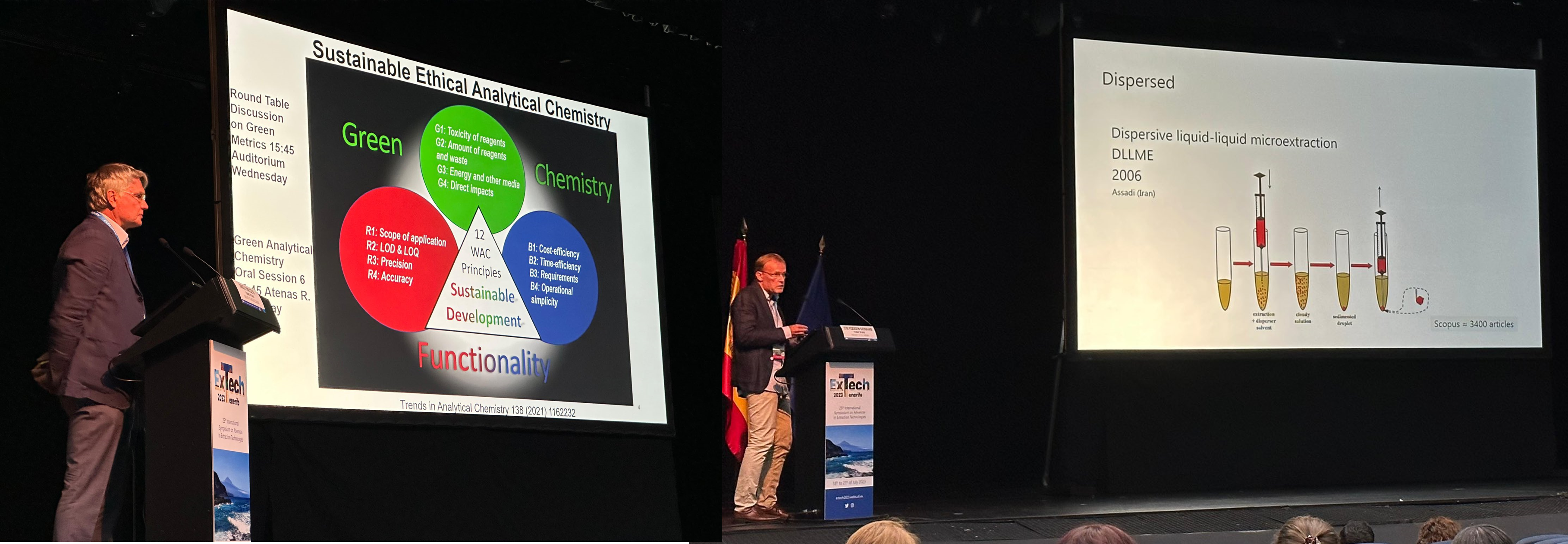
The two plenary speakers specifically highlighted the importance of incorporating the fundamentals of extraction processes into graduate and undergraduate textbooks, to train the next generation of scientists and unify teaching strategies for this important and ever-growing field of separation chemistry. The plenary concluded with an important message: “When the next generation of scientists enters the regulatory affairs, the analytical manufacturers, and the analytical laboratories, they will have a very strong sustainability commitment, and will for sure facilitate the Green Paradigm Shift. SPME and LPME (respectively, Solid and Liquid Phase Microextraction) and many other ideas discussed at ExTech 2023 will be their initial scientific platform. Therefore, what we do now will be very important in 10-15 years!”
Throughout the symposium, special emphasis was given to aspects of green analytical chemistry, and how the implementation of smart extraction technology can facilitate the compliance of analytical methods to the principles of green (and white) analytical chemistry (1,2). In fact, the scientific committee of ExTech organized a special discussion table on Green Metrics, moderated by Renata Wietecha-Posłuszny, where major innovations and challenges in the standardization of metrics to assess the greenness of analytical methodology were discussed. There was a large emphasis on sustainability and greenness of analytical methods in most of the talks and posters presented at the conference.
Discussion table on green metrics. From Left to Right: Marek Tobiszewski, Yolanda Moliner-Martínez, Frank Michel, Torsten C. Schmidt and Renata Wietecha-Posłuszny.
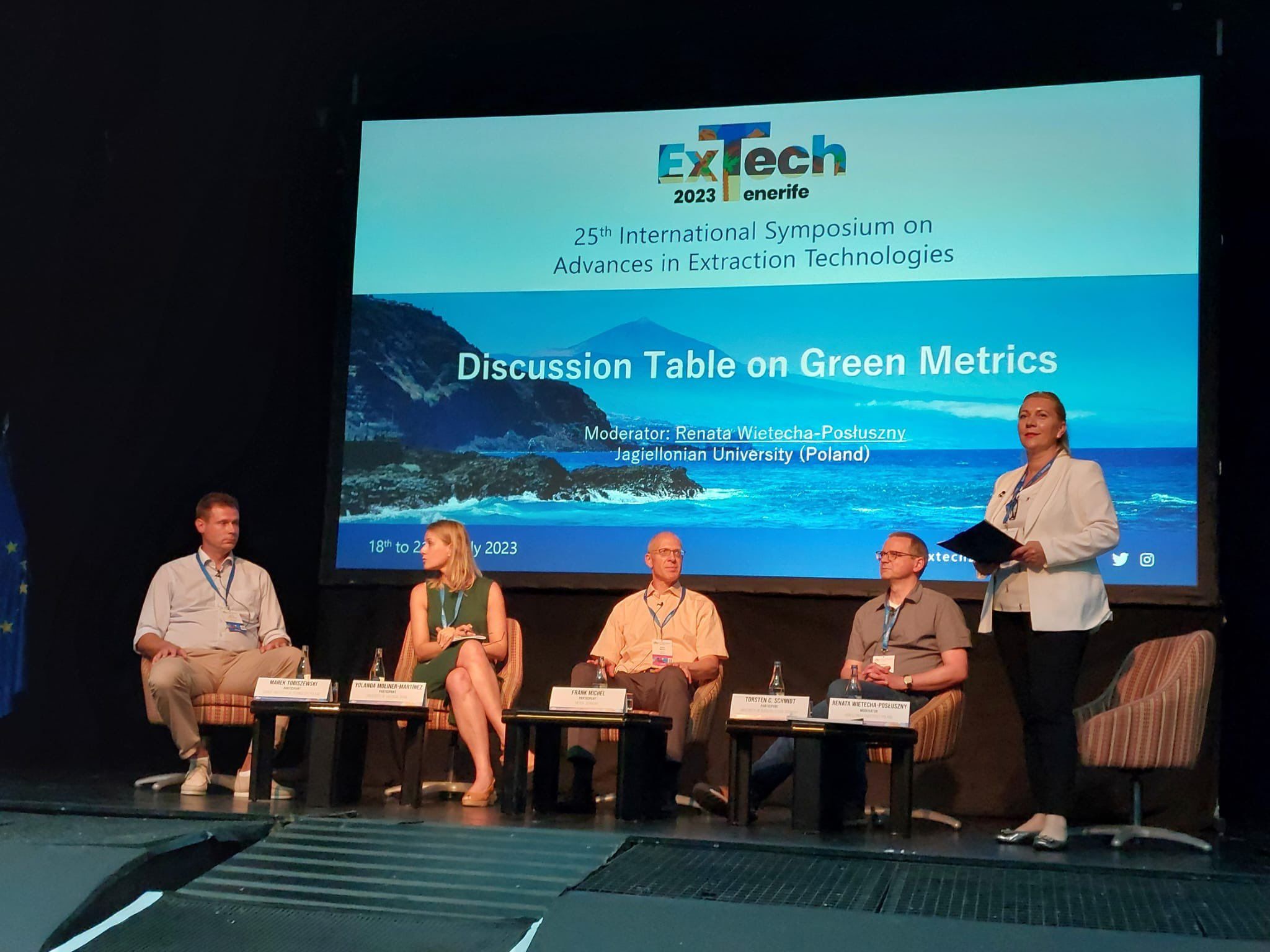
In this context, Chairwoman Pino thinks that “this conference has helped us to get to the point in which we should discuss green issues in chemical analysis from a global perspective, critically assess current green metrics for chemical analysis and consider what efforts are still needed to provide an objective and comprehensive evaluation of methods’ greenness and applicability. Especially considering that several oral presentations and posters somehow discuss greenness assessment of analytical methods, I think it is important to have this conversation within the extraction technologies and sample preparation community about where we are and where we want to move to.”
The symposium also dedicated eight oral sessions to young investigators, providing 29 scientists under the age of 35 an opportunity to present their work alongside leading scientists from around the world. This initiative aimed to encourage young scientists' participation, fostering interactions with, and learning from, experienced researchers. More than half of the 174 poster communications at the conference were presented by young scientists. On this topic, Chairwoman Pino commented, “Young researchers are presenting very important innovations in the field, and this is something that I want to highlight because we wanted to encourage presentations by younger researchers to show what they are doing and what they can offer to our community. At the same time, these young scientists have an opportunity to closely interact with seniors and this environment is fantastic for their development and to gain confidence in what they are doing.”
To further promote the participation of young scientists, ExTech 2023 awarded several travel grants sponsored by Sociedad Española de Cromatografía y Técnicas Afines (SECyTA), Sociedad Española de Espectrometría de Masas (SEEM), Sociedad Española de Química Analítica (SEQA) and EuChemS-DAC Sample Preparation.
Moreover, 10 awards for oral and poster communications sponsored by Analytica Chimica Acta (Elsevier), Green Analytical Chemistry (Elsevier), Analytical and Bioanalytical Chemistry (Springer), Real Sociedad Española de Química (Sección Territorial de las Islas Canarias) and Grupo Especializado de Ciencia y Tecnologías (Bio)Analíticas (RSEQ), were distributed to young scientists attending the conference. ExTech 2023 provided a lot of opportunities for the rising stars of the extraction technologies field!
The symposium also included a plenary lecture by Jared L. Anderson of Iowa State University (USA), titled “Advances in the design and production of sorbent materials for sample preparation”. The lecture discussed exciting developments in the design of 3D-printed sorbents and new extraction phases for nucleic acids extractions. The closing plenary lecture, titled “The role of (bio)polymeric phases in extending the sustainability of sample preparation” was delivered by Soledad Cárdenas of the University of University of Córdoba (Spain). Cárdenas elegantly discussed the latest advances in the use of biopolymers in sample preparation and their impact on promoting the sustainability of extraction processes by using natural materials.
Chairman Hernández-Borges also commented on the aftermath of ExTech 2023, saying, “We, the organizing committee of ExTech, are proud of the overall attendance of the symposium, especially considering about half of the attendees are PhD students. This testifies that research in the extraction technology field is very active and vibrant, and we are truly impressed with the quality of the oral and poster communications delivered by these young scientists.”
By the end of ExTech, Hernández-Borges delivered a powerful take-home message for those young scientists: “…continue to attend conferences like ExTech to network with your community (especially with senior scientists in the field) and keep updated with the most recent trends in the field. Do your research with curiosity, professionalism, and ethics. Ethics are nowadays one of the most important aspects of academic research to produce high-quality and reliable results. Believe in yourself and be proud of the great work you all are doing. Be open to new challenges and be bold when thinking about new solutions for chemical analysis, this is how we achieve scientific progress.”
The organizing committee of ExTech 2023.
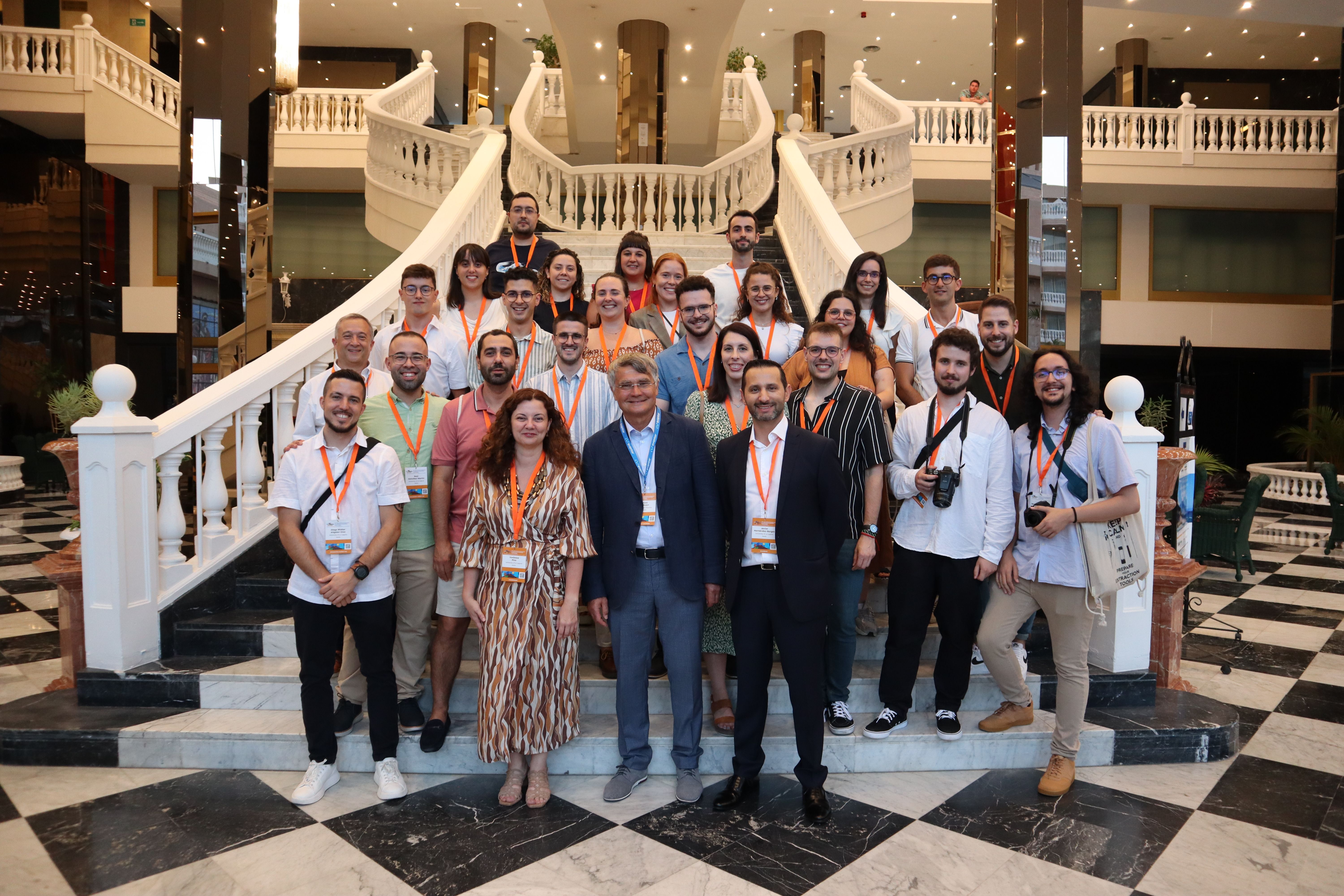
I bet by the end of this blog post, you will want to know where the next ExTech will be organized and join this vibrant community of separation scientists. Well… I have good news! Elena Stashenko of the Industrial University of Santander, in Bucaramanga, Santander, Colombia and Prof. Milton Rosero-Moreano of University of Caldas in Manizales, Caldas, Colombia, announced that the 26th iteration of ExTech will be organized next year in Bucaramanga, Colombia. I am sure we will be in for another excellent meeting and innovative discussions on extraction technologies. Stay tuned for more updates!
References
(1) Armenta, S.; Garrigues, S.; de la Guardia, M. Green Analytical Chemistry. TrAC – Trends in Analytical Chemistry 2008, 27 (6), 497–511. DOI: https://doi.org/10.1016/j.trac.2008.05.003.
(2) Nowak, P. M.; Wietecha-Posłuszny, R.; Pawliszyn, J. White Analytical Chemistry: An Approach to Reconcile the Principles of Green Analytical Chemistry and Functionality. TrAC - Trends in Analytical Chemistry 2021, 138. DOI: https://doi.org/10.1016/j.trac.2021.116223.
About the Author
Emanuela Gionfriddo is a professor at the University of Toledo, in Ohio. She received her PhD in analytical chemistry in 2013 from the University of Calabria, and carried out postdoctoral studies with Prof. Janusz Pawliszyn at the University of Waterloo in Canada. The focus of her work is creating green extraction methodologies to analyze complex biological and environmental samples. Gionfriddo has also been recognized with a National Science Foundation CAREER Award, and she is the 2023 winner of the LCGC Emerging Leader in Chromatography Award.
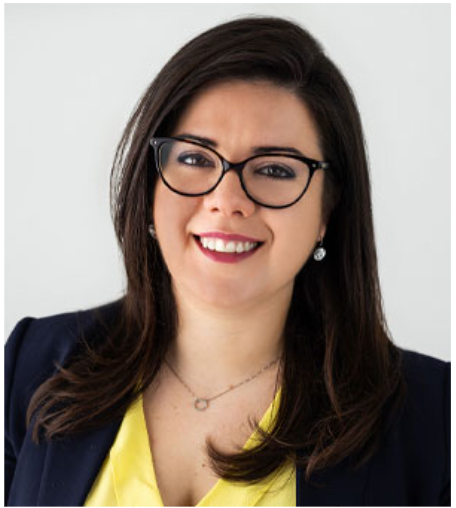
New Study Uses MSPE with GC–MS to Analyze PFCAs in Water
January 20th 2025Scientists from the China University of Sciences combined magnetic solid-phase extraction (MSPE) with gas chromatography–mass spectrometry (GC–MS) to analyze perfluoro carboxylic acids (PFCAs) in different water environments.
SPE-Based Method for Detecting Harmful Textile Residues
January 14th 2025University of Valencia scientists recently developed a method using solid-phase extraction (SPE) followed by high-performance liquid chromatography coupled to high-resolution mass spectrometry (HPLC–HRMS/MS) for detecting microplastics and other harmful substances in textiles.